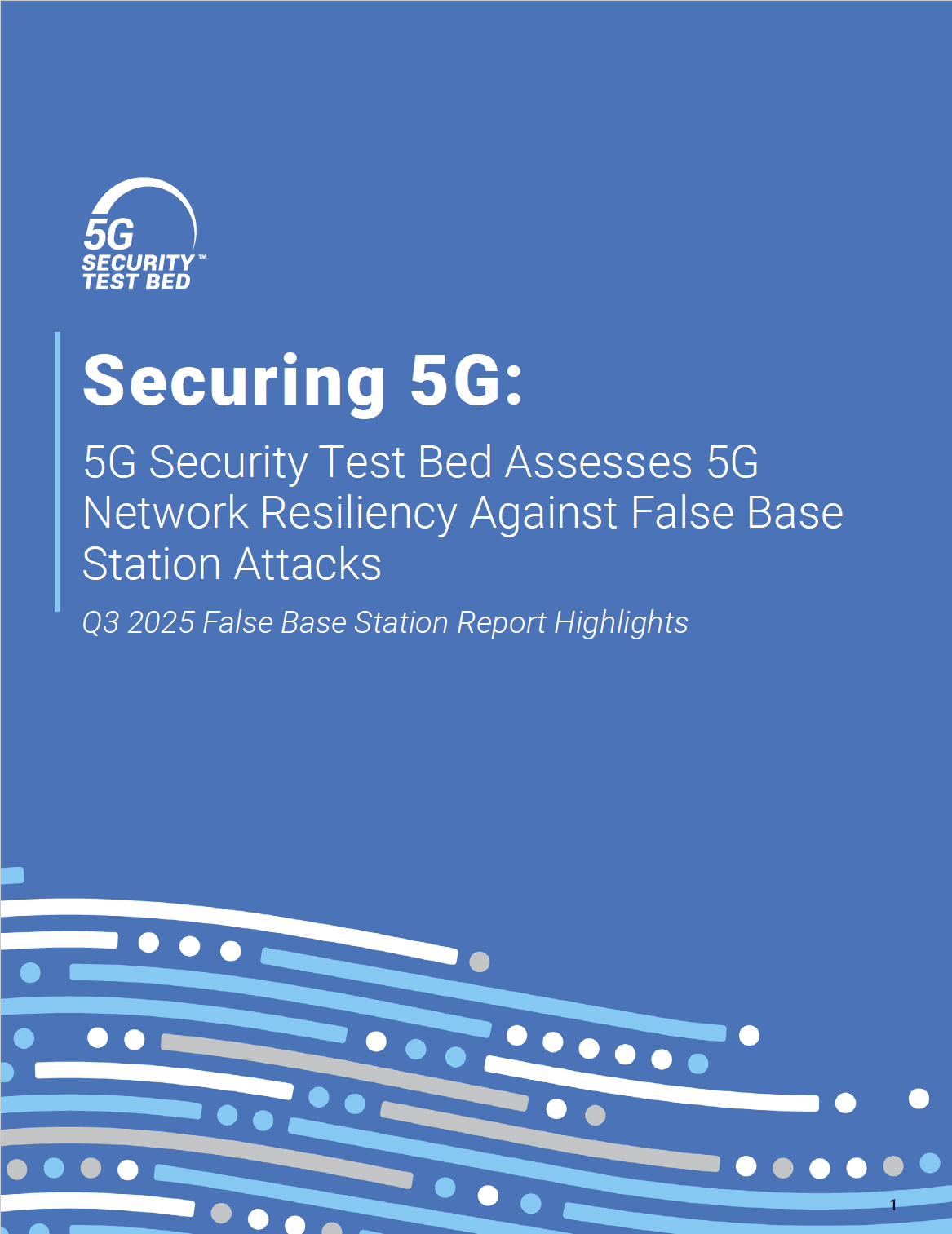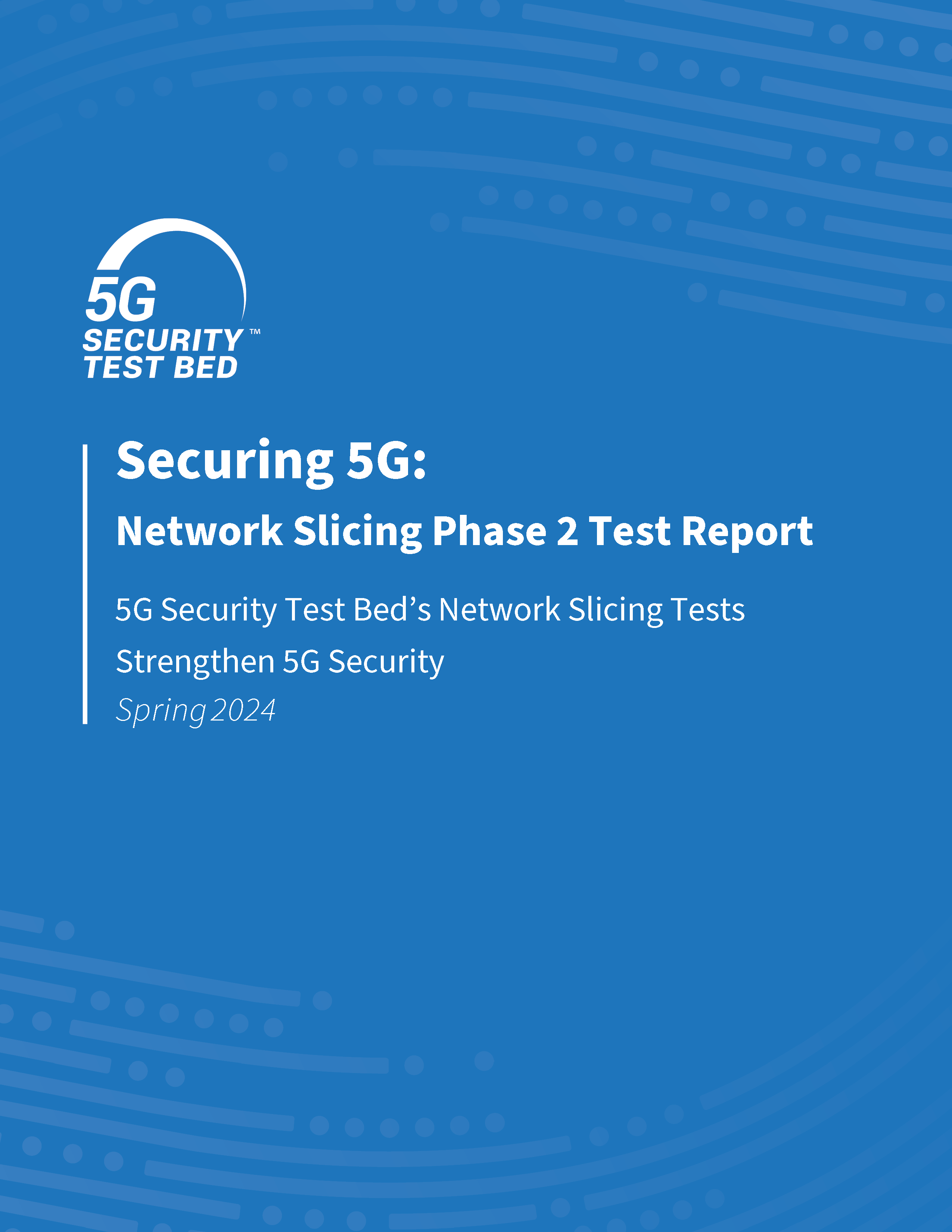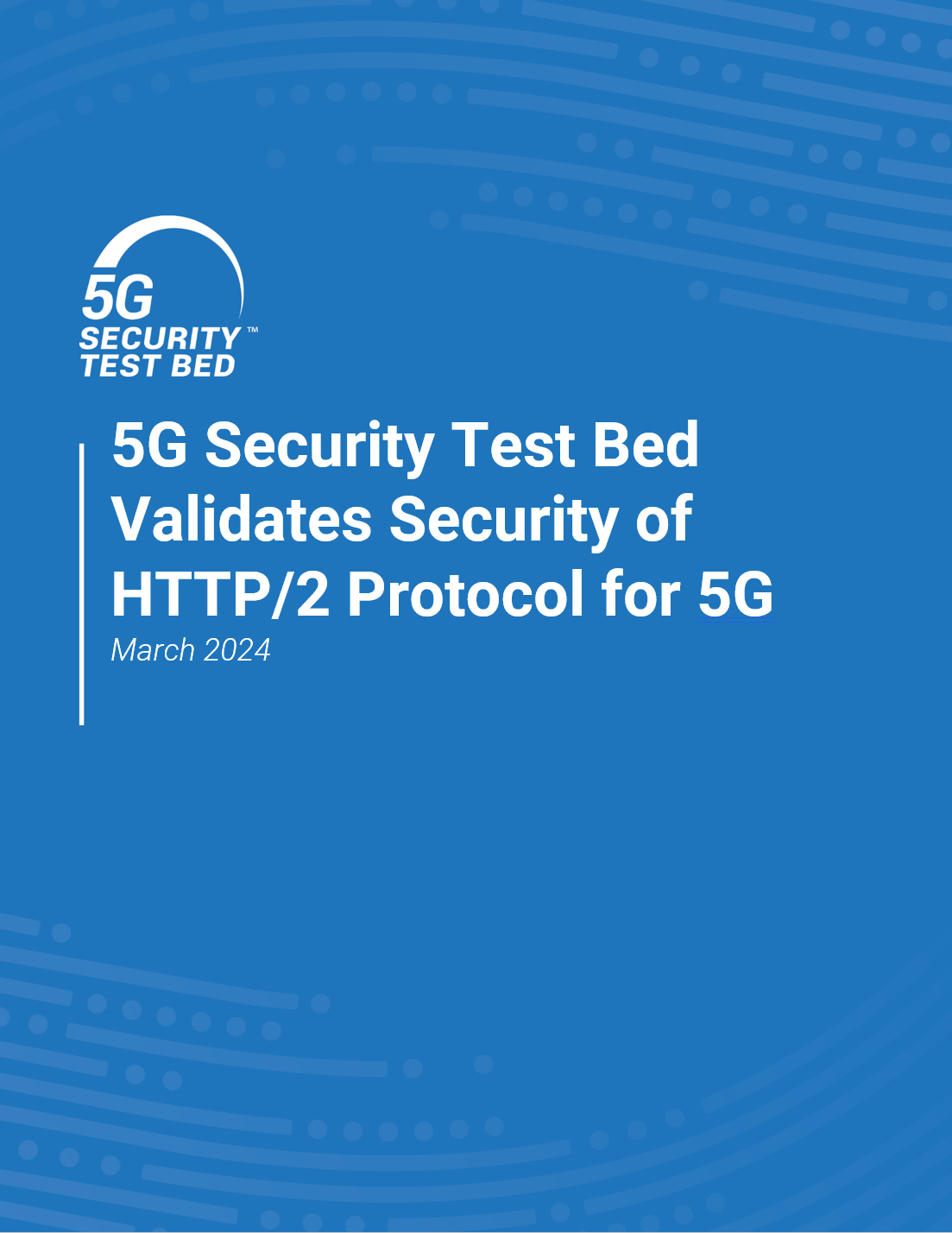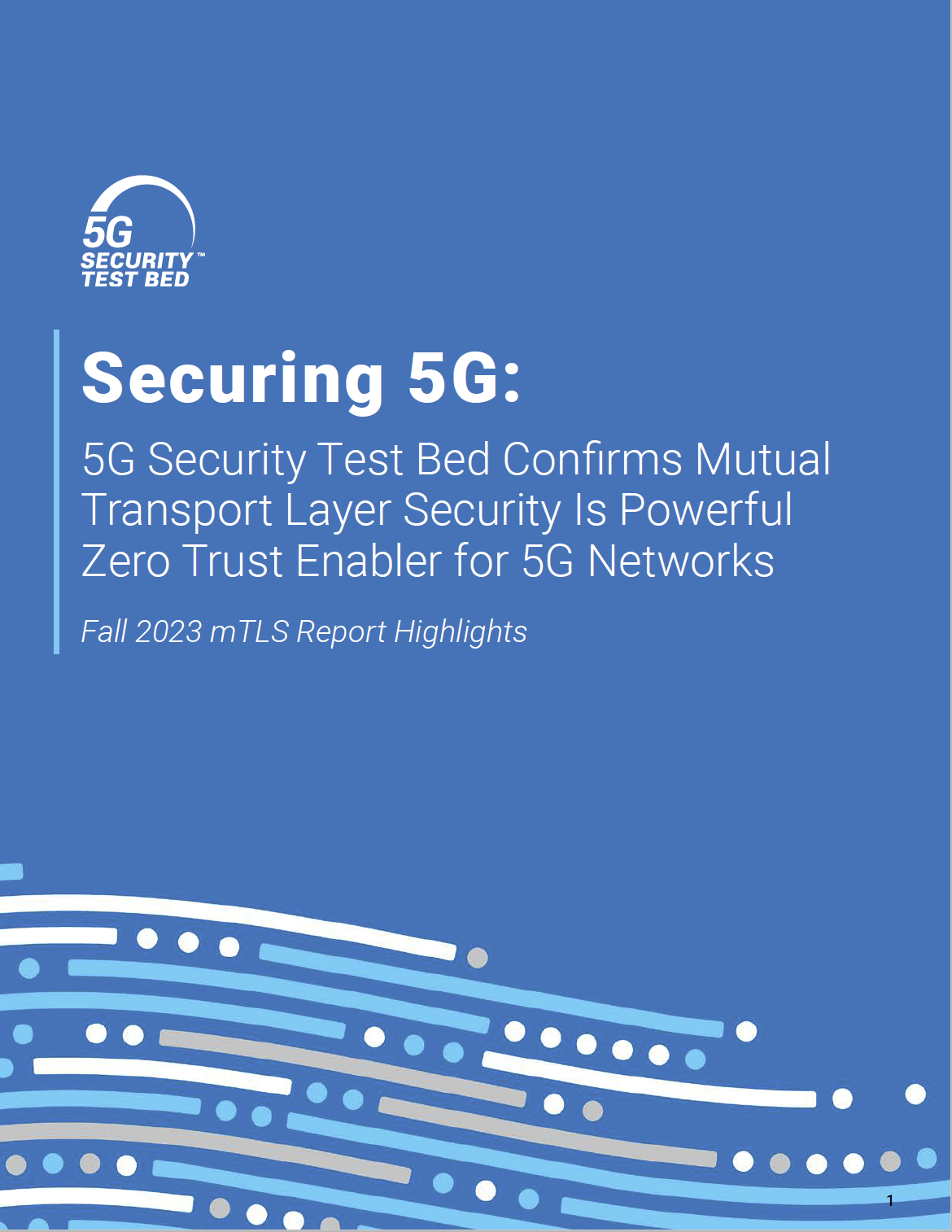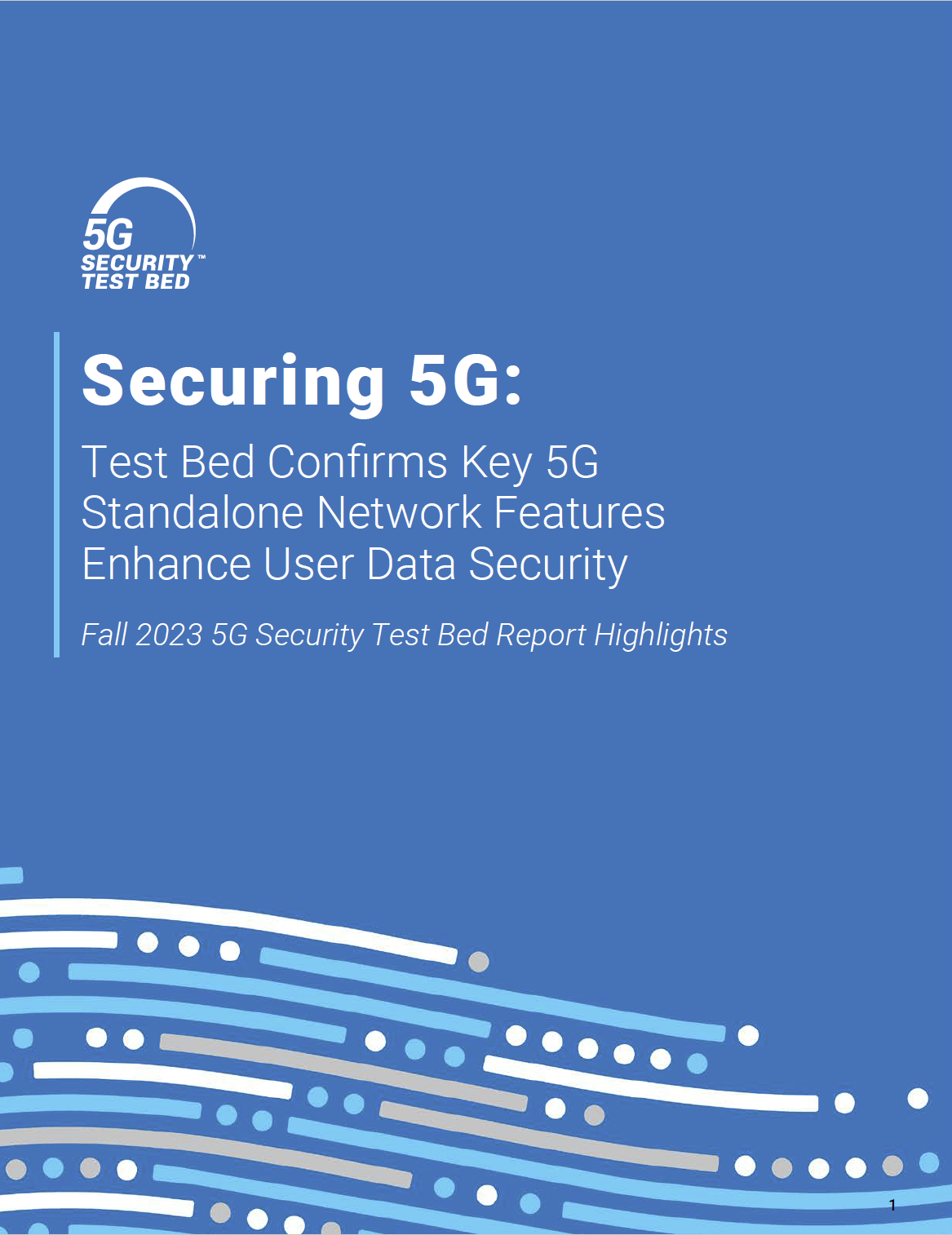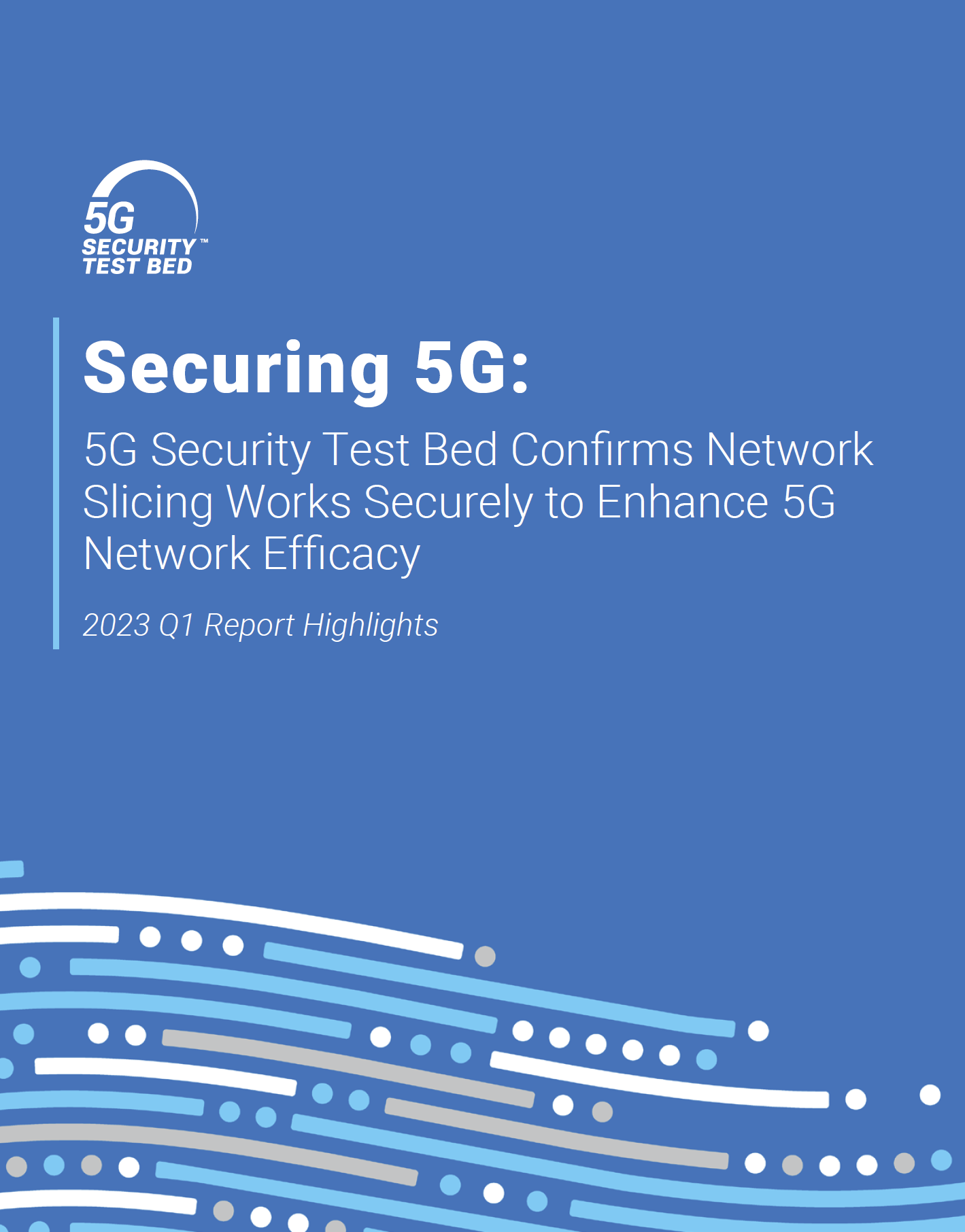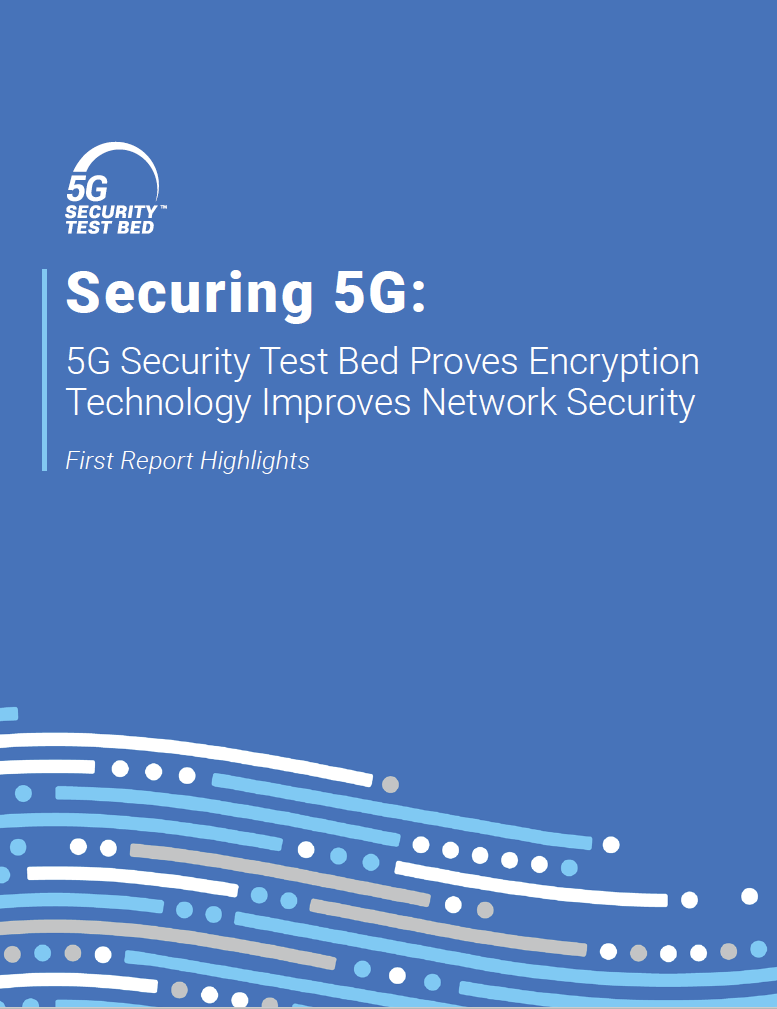5G Security Test Bed Confirms 5G Networks Are Resilient Against False Base Station Attacks
This report assesses 5G device behavior in response to attacks from false base stations impersonating legitimate 5G networks. The tests assessed a 5G test device’s response to multiple false base station attack scenarios when operating both with and without 5G encryption protocols enabled. When provisioned with 5G encryption protocols, the test device recovered from the attacks or avoided them completely in all scenarios, and no identifying information was shared with the false base station. The test results confirm 5G networks are significantly more resilient against false base station attacks compared to earlier systems.
5G Security Test Bed’s Phase 2 Network Slicing Tests Strengthen 5G Security
This report addresses network slicing security on 5G networks, adding to three previous test cases conducted in the Phase 1 network slicing report released in 2023. This round of tests investigates and verifies network slicing security features outlined in a 2021 AdaptiveMobile Security (AMS) report, A Slice in Time: Slicing Security in 5G Core Networks. This Test Bed effort resulted in the development of enhanced wireless network security and user data protections, strengthening the international 5G network slicing standard.
Learn more
HTTP/2 Report: Test Bed Validates Security of HTTP/2 Protocol for 5G Networks
At the request of the FCC, the Communications Security, Reliability, and Interoperability Council (CSRIC) VIII advisory group examined and made recommendations to enhance security for the newly adopted 5G signaling protocol, HTTP/2. The wireless industry’s 5G Security Test Bed conducted an analysis to assess CSRIC’s findings and recommendations, determining that the use of mutual transport layer security (mTLS) encryption enhances network security.
learn more
mTLS Security Report: Test Bed Confirms mTLS Is a Powerful Zero Trust Enabler for 5G Networks
The 5G Security Test Bed designed and conducted five tests to verify recommendations from the FCC’s CSRIC advisory committee and others around the use of mutual transport layer security (mTLS) on the Service-Based Interface (SBI) between the 5G network functions (NFs). The tests were successful, confirming that mTLS can be used for the encryption of data and the mutual authentication of 5G network functions that exchange data across the SBI, enabling Zero Trust in a 5G environment. This is great news for consumers—mTLS is already being deployed, and implementation will continue to grow as the U.S. wireless industry upgrades its 5G networks from NSA to SA nationwide.
learn more
5G Standalone Phase 1 Report: Test Bed Confirms Implementation of 5G SA Network Features Improves User Data Security
The 5G Security Test Bed executed several tests to confirm that the implementation of optional 3GPP protections, as recommended by the FCC’s CSRIC advisory committee, would improve 5G standalone network security. The test results successfully verified that implementation of these optional standards—including SUCI encryption, NEA2 algorithms, IPsec tunnels, and PDCP layer protection—significantly strengthens 5G network security. The U.S. wireless industry already voluntarily adopts 3GPP’s optional standards to its 5G standalone networks, ensuring user information is protected.
learn more
Network Slicing Phase 1 Report: Test Bed Confirms Network Slicing Works Securely to Enhance 5G Network Efficacy
The 5G Security Test Bed tested 3 use cases assessing network slicing on 5G standalone networks. The tests confirmed that implementation of 5G standards body 3GPP’s Technical Specifications, along with select measures recommended by the FCC’s Communications Security, Reliability, and Interoperability Council (CSRIC), can improve user security, and that layering additional encryption tools can further improve security without compromising data on 5G standalone networks.
learn more
5G Security Test Bed Inaugural Report: Encryption Technology Improves 5G NSA Network Security
The 5G Security Test Bed’s first round of testing evaluated 3 use cases assessing IPsec tunnel encryption and TLS security protocols on 5G non-standalone (NSA) networks. The tests validated that when these recommendations are implemented, data from consumers, governments, and enterprises is more secure and not subject to tampering.
Learn More
